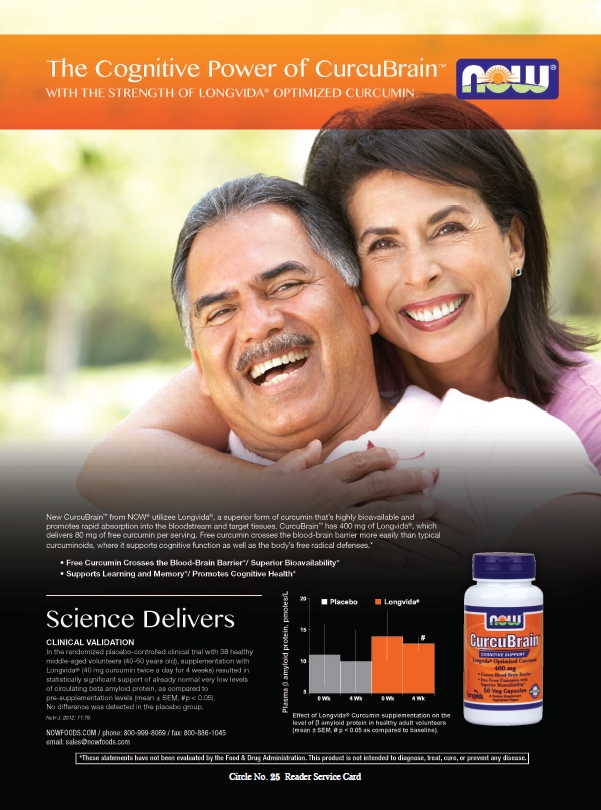Prostate health is an important consideration for all men. In fact, about one man in every seven is diagnosed with prostate cancer during his lifetime (1).
One precursor to prostate cancer is an enlarged prostate, termed benign prostatic hyperplasia (BPH). BPH is caused by increased multiplication of prostate cells, which causes the prostate to swell and puts pressure on the urethra. Symptoms associated with BPH include frequent urination, trouble starting urination, weak urinary stream, insufficient bladder emptying and discomfort (2). With this in mind, many men take a proactive approach to prostate health and are looking to natural supplementation.
First on the list is lycopene. Some research suggests that lycopene inhibits the progression of prostate tumor growth and cancer cell proliferation (3). A study showed that men with BPH taking a placebo experienced further enlargement of the prostate gland, unlike those receiving lycopene supplementation of 15 mg/day (4). A second study found that high lycopene consumption via diet, especially from tomato sauce, reduced the risk of men developing prostate cancer by 30–40% (5).
Saw palmetto is believed to have  anti-inflammatory properties and has long been used to by men experiencing prostate enlargement and discomfort (2). In a 12-month randomized study of 811 BPH symptomatic men, 704 individuals took 0.4 mg/day of a BPH drug (tamsulosin, n = 354) or 320 mg/day of saw palmetto (Permixon, n = 350). The saw palmetto performed as well as the drug, but the herb had fewer side effects. The saw palmetto group also experienced some prostate shrinkage, while the drug did not create this effect (6).
anti-inflammatory properties and has long been used to by men experiencing prostate enlargement and discomfort (2). In a 12-month randomized study of 811 BPH symptomatic men, 704 individuals took 0.4 mg/day of a BPH drug (tamsulosin, n = 354) or 320 mg/day of saw palmetto (Permixon, n = 350). The saw palmetto performed as well as the drug, but the herb had fewer side effects. The saw palmetto group also experienced some prostate shrinkage, while the drug did not create this effect (6).
But not all studies show benefits. In a separate study conducted with 369 men over the age of 45, individuals took a placebo or saw palmetto in increasing dosages of 320 mg/day, 640 mg/day and 960 mg/day in 24-week increments. It was found that there was no differential effect on serum levels of prostate specific antigen, a prostate health marker in the blood, between saw palmetto and placebo groups (7).
Beta-sitosterol is documented for supporting prostate health, specifically reducing BPH. The plant sterol ester is said to work by binding to the prostate and reducing swelling/inflammation (8). Studies conducted to test the effect of beta-sitosterol on BPH found that there was a significant improvement in subjects’ perceived symptoms as well as objective measurements such as urine flow. The largest study of this kind lasted for six months. Following the trial, men from the study continued to see benefits a year afterward (2). The recommended daily dosage for beta-sitosterol is 60–135 mg, and effects typically take four weeks to develop (2).
An extract of the African prune tree, pygeum, has been extensively studied for its benefits on prostate health (9). The studies showed a significant improvement in several BPH symptoms, including peak urine flow and residual urine volume (9).
In multiple double-blind studies, grass pollen extract had statistically significant improvements on overall prostate symptoms when compared to placebo (2). Improvements in bladder emptying, less nighttime urination and a significant decrease in prostate size were all noted (2). In one study of 57 men diagnosed with BPH, 69% of participants reported overall prostate symptom improvement compared to 29% in the placebo group (2). There are no serious side effects reported from those who have used grass pollen extract, even those with a grass pollen allergy, as the allergenic proteins have been removed from the extract. WF
References
1. American Cancer Society, “What Are the Key Statistics About Prostate Cancer?” www.cancer.org/cancer/prostatecancer/detailedguide/prostate-cancer-key-statistics, accessed Apr. 28, 2014.
2. NYU Langone Medical Center, “Benign Prostatic Hyperplasia,” www.med.nyu.edu/content?ChunkIID=21386, accessed Apr. 28, 2014.
3. Memorial Sloan Kettering Cancer Center, “Lycopene,” www.mskcc.org/cancer-care/herb/lycopene, accessed Apr. 28, 2014.
4. S. Schwarz, et al., “Lycopene Inhibits Disease Progression in Patients with Benign Prostate Hyperplasia,” J. Nutr. 138 (1) 49–53 (2008), http://jn.nutrition.org/content/138/1/49.full, accessed Apr. 28, 2014.
5. E. Giovannucci, “A Review of Epidemiologic Studies of Tomatoes, Lycopene, and Prostate Cancer,” Exp. Biol. Med. 227 (10), 852–859 (2002), http://ebm.sagepub.com/content/227/10/852.short, accessed Apr. 28, 2014.
6. F. Debruyne, et al., “Comparison of a Phytotherapeutic Agent (Permixon) with an Alpha-Blocker (Tamsulosin) in the Treatment of Benign Prostatic Hyperplasia: A One-Year Randomized International Study,” Eur. Urol. 41, 497–507 (2002).
7. G.L., Andriole, “The Effect of Increasing Doses of Saw Palmetto Fruit Extract on Serum Prostate Specific Antigen: Analysis of the CAMUS Randomized Trial,” J. Urol. 189 (2), 486–492 (2013), www.ncbi.nlm.nih.gov/pubmed/23253958, accessed Apr. 28, 2014.
8. RXList.com, “Beta-Sitosterol,” www.rxlist.com/beta-sitosterol-page2/supplements.htm, accessed Apr. 28, 2014.
9. T. Wilt, et al., “Pygeum africanum for Benign Prostatic Hyperplasia,” Cochrane Database Syst. Rev., 2002, www.vitasearch.com/get-clp-summary/30909, accessed Apr. 28, 2014.
Published in WholeFoods Magazine, June 2014









